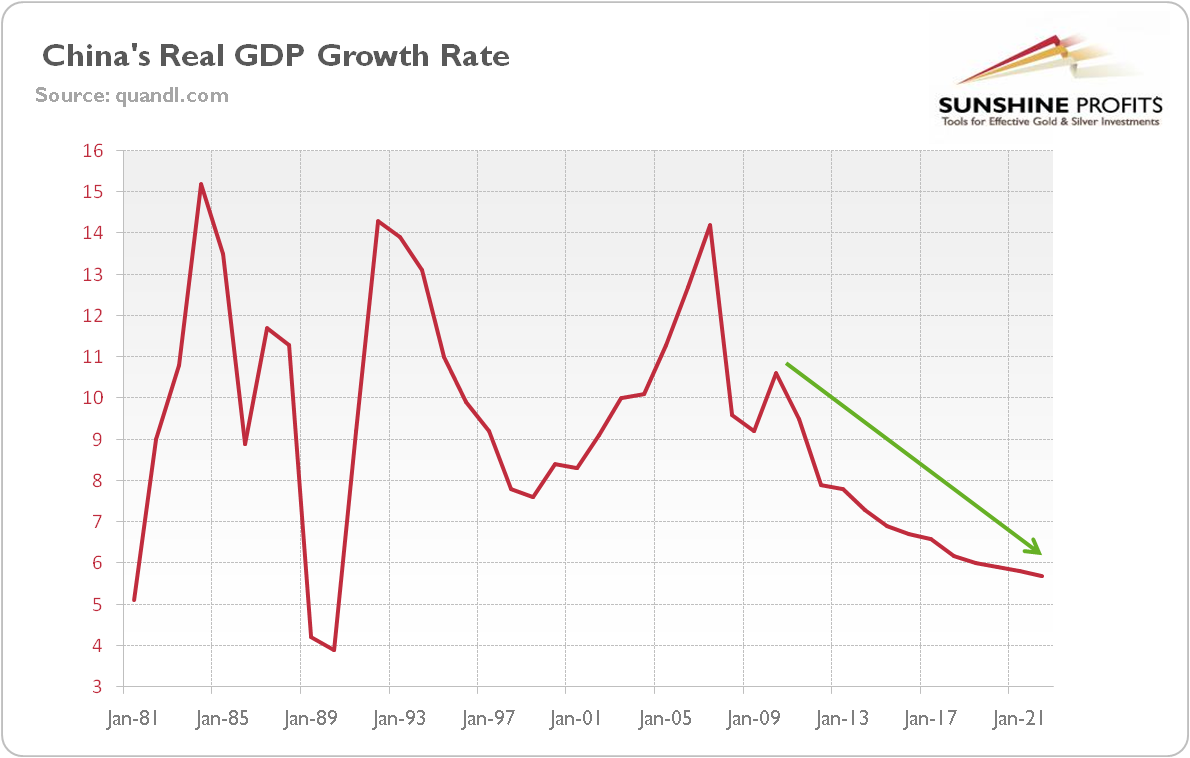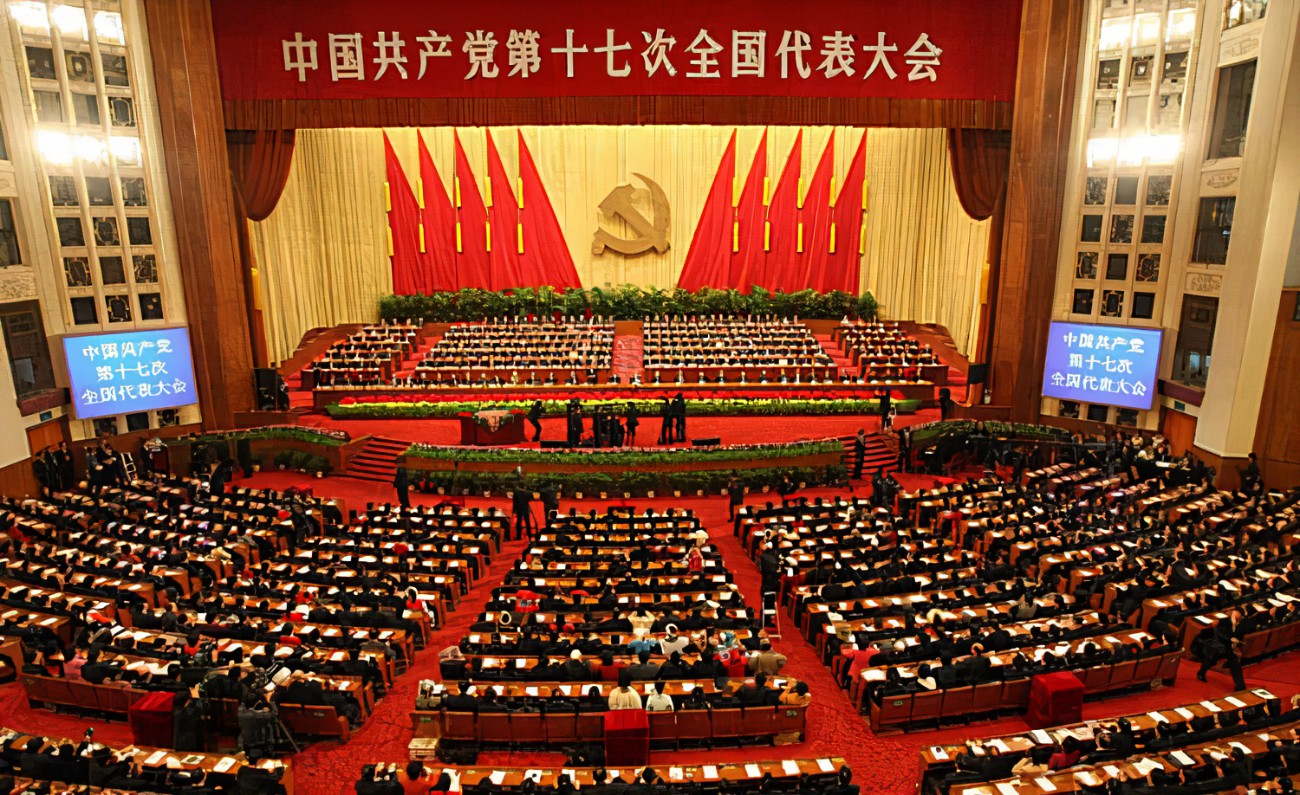As the National Party
Congress nears it raises the probability that China's reaction to things
that occur in coming months will be rooted in politics rather than
economics. Currently, China is struggling with a huge number of issues including the hosting of the Olympics. A resurgence of Covid-19 has complicated this. With the eyes of the world focused on China, everything is about politics and the one thing its leaders don't want is to be publicly humiliated or embarrassed.
 |
| Growth In China Is Rapidly Slowing |
- Integrating Hong Kong into the mainland
- The continued fallout from its
zero-Covid policy
- Tensions continue to escalate between Taiwan and the mainland
- Power shortages have become common
- Corruption and policies that encourage poor quality growth
- Pollution is a big problem
- The currency, the yuan, is struggling
- China lacks the natural resources to support its large population
- Growing inequality
- The demographics of one child has resulted in an aging population
- It continues down the path of growing social control and repression
- It remains guilty of human rights abuse
- And it is facing a collapsing housing market that will destroy wealth and savings
The list above is why China cannot declare victory and the next five-year plan is so important. It appears China's goal of common prosperity and dual circulation has run into a wall. In short, China is not a "better place to be." Over the last several decades, the West has transferred trillions of dollars of wealth into China. Much of this has been poorly spent and squandered building ghost cities and bridges to nowhere.
Then, there is the issue of One Belt One Road or OBOR. Emboldened by an influx of wealth from the West, China has played fast and
loose with creating and loaning out new funds. China has lent trillions of dollars to countries. The Center for Global Development, a Washington-based think tank, has highlighted in a report entitled Examining the Debt Implications of the Belt and Road Initiative from a Policy Perspective,
it underlined the problems of extending credit to poor or unstable
countries. These
loans have the potential to saddle weak countries with “excessive debt and low-quality
projects.” The question has been raised as to whether this initiative will pay off or whether it is just a game Of Debt Diplomacy where China tries to put countries in a debt trap so it can steal their natural resources.
With growth in China slowing, it is predicted to grow 4.8% this year, down 0.8
percentage points from earlier estimates, it could be argued the country is facing long-term stagnation. Much of China's resources have been flowing into the wrong sectors of the economy, this is evident in the financial stress now apparent among its
property developers. Another large factor contributing to productivity had been infrastructure investments based on planning, but the efficiency of these has fallen over the years. Part of this has been due to corruption and the incentive to just build it to promote growth.
Returning to the issue of the CCP 20th National Party
Congress, this is where the decision will be made whether Xi Jinping stays for an unprecedented third term or his
political power is neutered. So many cracks are beginning to appear in China's economy that it puts the leadership position in play. The notion Xi Jinping will remain in power is not carved in stone and his removal would signal a major change. Political fortune can change very quickly in Chinese politics, this is something most westerners often forget.
It is important to remember that China’s future institutional path depends on the relationship between its national system of economic development and the CCP cadre system. This cadre system is the most stable political institution in China and plays into everyday life. Those that make up the Politburo contention have waited their entire lives to receive the political appointments they seek. They have served different factions and politically survived through decades of policy and institutional change.
 |
| This Is A Problem! |
Considering the difficult path China faces, do not be surprised if the change that comes, bubbles up from below. Such change often flows from necessity rather than choice and is not always good. Companies based in China also owe foreigners a great deal of money based on dollar-denominated agreements. Whether we are talking about Democracy, Communism, Socialism, or Fascism the strong link they share is one of dominance and a desire to control. Whatever changes in policies China chooses to undertake, expect them to be shaped by the desire to control.
Footnote; Again, I recommend those wanting more of an "on the ground" view of China view the following YouTube video; https://www.bing.com/videos/search?q=https%3a%2f%2fwww.youtube.com%2fwatch%3fv%3dlKbLB_T-IjY&&view=detail&mid=C60E8FEB6236A8A53EE5C60E8FEB6236A8A53EE5&&FORM=VDRVRV
(Republishing of this article welcomed with reference to Bruce Wilds/AdvancingTime Blog)

I was shocked when the Soviet Union peacefully dissolved. I was expecting the elites to launch a war against the West in order to use patriotic fever to cover for their looting for a few more years.
ReplyDeleteThe situation in China is just as dire for the elites, and they are just as dangerous. First, the US Federal Reserve attempted to cause a recession in the US starting 2016. But there was so much pent up demand for growth, it just transferred the recession to our trading partners- so China was hit then and the GDP chart attached to this blog entry is optimistic by several percent. Chinese business statistics are fraudulent. Second, Chinese government mismanagement during the early part of the Covid pandemic caused many business owners to torch their business. The rolling lock down approach that the government has used to fight covid, is making the Chinese even more suspicious of the government, if possible, and even more cautious about investment in China. This means a future with greater control and oppression to counteract this, and even less growth as a result.